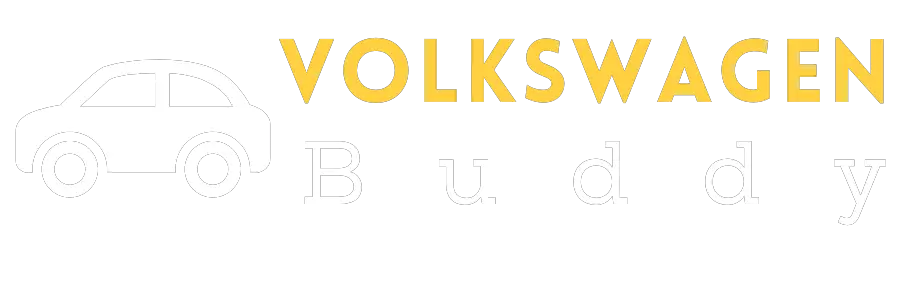Is The Volkswagen Tiguan All Wheel Drive [Answered]
Volkswagen Tiguan Is It All Wheel Drive
The Volkswagen Tiguan is a compact crossover SUV that is available in both front-wheel-drive and all-wheel-drive configurations. The all-wheel-drive system on the Tiguan is called 4Motion and it provides excellent traction in all weather conditions.
In this article, we will take a closer look at the Volkswagen Tiguan’s all-wheel-drive system and discuss its benefits and drawbacks. We will also compare the Tiguan’s all-wheel-drive system to those of other compact crossovers on the market.
So, Is The Volkswagen Tiguan All Wheel Drive
Yes, the Volkswagen Tiguan is an all-wheel drive vehicle.
Is the Volkswagen Tiguan All Wheel Drive?
The Volkswagen Tiguan is a compact SUV that is available in both front-wheel drive and all-wheel drive configurations. The all-wheel drive system on the Tiguan is called 4Motion and it is offered on all trim levels except the base S trim.
How Does the 4Motion System Work?
The 4Motion system on the Tiguan uses a Haldex coupling to distribute power between the front and rear wheels. The Haldex coupling is a hydraulically-controlled clutch that can vary the amount of power that is sent to the rear wheels. When the front wheels start to slip, the Haldex coupling engages and sends more power to the rear wheels. This helps to improve traction and handling in slippery conditions.
Benefits of All-Wheel Drive
There are a number of benefits to having all-wheel drive on a vehicle, including:
Improved traction in slippery conditions: All-wheel drive can help to improve traction in slippery conditions, such as snow, ice, and mud. This can make it easier to get around in bad weather and to drive on unpaved roads.
Improved handling: All-wheel drive can also help to improve handling, especially in corners. This is because all-wheel drive provides more grip and traction, which can help to prevent the vehicle from slipping or sliding.
Increased safety: All-wheel drive can also increase safety, especially in slippery conditions. This is because all-wheel drive can help to prevent the vehicle from losing control and sliding off the road.
Drawbacks of All-Wheel Drive
There are a few drawbacks to having all-wheel drive on a vehicle, including:
Increased fuel consumption: All-wheel drive vehicles typically have higher fuel consumption than front-wheel drive vehicles. This is because all-wheel drive systems require more power to operate.
Increased weight: All-wheel drive systems also add weight to a vehicle. This can make the vehicle less fuel-efficient and can also affect handling.
Increased cost: All-wheel drive vehicles typically cost more than front-wheel drive vehicles. This is because all-wheel drive systems are more expensive to design, engineer, and manufacture.
Conclusion
Whether or not all-wheel drive is right for you depends on your driving needs and preferences. If you live in an area with a lot of snow or ice, or if you frequently drive on unpaved roads, then all-wheel drive can be a great option. However, if you live in an area with mild weather and you only drive on paved roads, then all-wheel drive may not be necessary.
Also Read: Is Volkswagen Atlas 4 Wheel Drive
FAQs: Is the Volkswagen Tiguan All Wheel Drive?
Is the Volkswagen Tiguan all wheel drive?
Yes, the Volkswagen Tiguan is available with all-wheel drive.
What are the different all-wheel drive systems available on the Volkswagen Tiguan?
The Volkswagen Tiguan is available with two different all-wheel drive systems:
4Motion Active Control: This system is standard on all Tiguan models except the base S trim. It uses a Haldex coupling to distribute power between the front and rear axles as needed.
4Motion with Torque Vectoring: This system is available on the Tiguan R-Line and SEL Premium trims. It uses a more advanced Haldex coupling that can also distribute power between the rear wheels, providing improved handling and traction.
What are the benefits of getting an all-wheel drive Volkswagen Tiguan?
There are several benefits to getting an all-wheel drive Volkswagen Tiguan, including:
Improved traction in slippery conditions: All-wheel drive provides better traction in slippery conditions, such as snow, ice, and rain. This can make it safer to drive in these conditions and can also help you avoid accidents.
Improved handling: All-wheel drive can also improve handling, especially in corners. This is because all-wheel drive helps to distribute power to all four wheels, which can help to keep the car stable.
More versatility: All-wheel drive can also make your Volkswagen Tiguan more versatile. You can use it to tow a trailer or go off-road, for example.
Are there any downsides to getting an all-wheel drive Volkswagen Tiguan?
There are a few downsides to getting an all-wheel drive Volkswagen Tiguan, including:
Higher price: All-wheel drive models of the Volkswagen Tiguan are typically more expensive than front-wheel drive models.
Less fuel-efficient: All-wheel drive models of the Volkswagen Tiguan are also typically less fuel-efficient than front-wheel drive models.
Should I get an all-wheel drive Volkswagen Tiguan?
Whether or not you should get an all-wheel drive Volkswagen Tiguan depends on your needs and driving conditions. If you live in an area with snowy winters or if you plan on doing a lot of off-roading, then an all-wheel drive Tiguan is a good option. However, if you live in an area with mild winters and don’t plan on doing any off-roading, then a front-wheel drive Tiguan may be a better option.



![Are Volkswagen Front Wheel Or Rear Wheel Drive [Find Out]](https://volkswagenbuddy.com/wp-content/uploads/2024/06/are-volkswagen-front-wheel-or-rear-wheel-drive-find-out_4833-768x531.jpg)


![Is A Volkswagen Tiguan 4 Wheel Drive [Answered]](https://volkswagenbuddy.com/wp-content/uploads/2024/06/is-a-volkswagen-tiguan-4-wheel-drive-answered_4798-768x531.jpg)